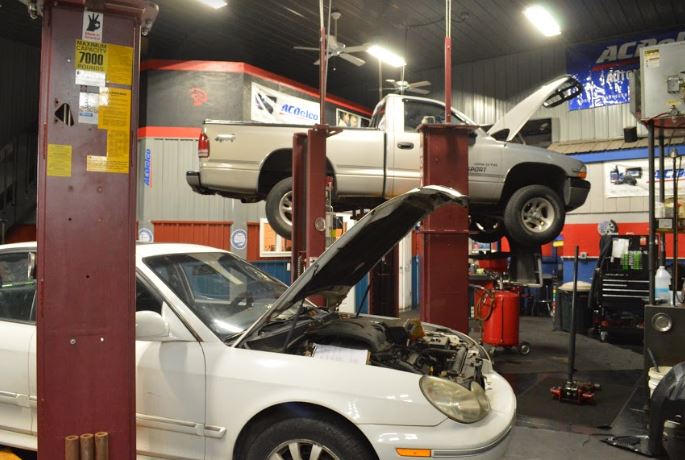All Categories
Featured
Brakes are perhaps one of the most important security attribute of any lorry. Without trusted brakes, also the most powerful cars and truck can become a risk when driving. That's why normal brake inspections are a must for guaranteeing your car stops when you require it to. Adhering to a correct brake evaluation routine can not only maintain you secure yet additionally assist you stay clear of costly repair services. Right here's a comprehensive overview on how to properly inspect your brakes and what to watch out for.
- The Importance of Regular Brake Inspections. Brakes undertake constant deterioration with every usage, whether you're driving at high speeds on the freeway or cruising through city streets. Gradually, brake pads, blades, and various other parts put on down, which can affect stopping performance. Without regular inspections, you might not observe the progressive decline in efficiency till it's far too late.
Routine brake examinations enable you to capture concerns early, guaranteeing that your brakes continue to be responsive, trustworthy, and secure. Prompt examinations can additionally save you money by dealing with minor problems prior to they come to be expensive repair services.
- Typical Indicators That Your Brakes Need Focus. While regular brake inspections are essential, there are some indication you can keep an eye out for to understand when it's time to arrange a check-up:
Squealing or Grinding Seems: Shrill squeaks or grinding noises when applying the brakes are usually signs that your brake pads are used out and need replacement. Resonance or Pulsation: If you feel resonances in the steering wheel or the brake pedal, it might suggest deformed blades, which might need resurfacing or changing. Soft or Mushy Brake Pedal: If the brake pedal really feels uncommonly soft or spongy, there might be air in the brake lines or a problem with the master cyndrical tube. Pulling away: If your auto pulls away while braking, this can be brought on by irregular brake pad wear or a concern with the brake liquid. Increased Quiting Distance: If it takes longer to quit than common, it might show that the brake pads are used, the liquid is low, or the rotors are damaged. If you observe any one of these symptoms, it's best to have your brakes examined immediately.

- Trick Components Checked During Brake Inspections. Throughout a brake examination, a professional will examine numerous crucial components of the braking system to guarantee every little thing is functioning appropriately. Here are the key elements involved:
Brake Pads: One of the most typical factor for poor stopping efficiency is worn-out brake pads. Evaluating the density of the pads is a priority throughout every evaluation. Brake Rotors: Rotors ought to be smooth and without grooves or fractures. Any kind of substantial damage to the rotors can lead to jeopardized stopping efficiency and unequal pad wear. Brake Liquid: Low or contaminated brake fluid can hinder braking efficiency. The professional will certainly inspect the liquid degrees and top quality and change it if essential. Brake Lines and Pipes: Brake lines ought to be complimentary of leaks or cracks. Any damage to the lines can lead to loss of brake liquid, bring about brake failure. Brake Calipers: The calipers apply stress to the brake pads. They must be inspected for indicators of wear or leakages to ensure they are working properly. Regularly examining these components helps maintain your brake system in peak problem, allowing you to quit your auto safely and successfully.
- Exactly how Typically Should You Have Your Brakes Inspected? The basic suggestion is to have your brakes inspected a minimum of annually or every 12,000 miles, depending on your driving practices. Nevertheless, specific driving conditions might require more constant inspections:
Rush Hour: If you frequently drive in stop-and-go website traffic, your brake pads will certainly put on down quicker. Mountain Driving: Driving on high roads needs more regular stopping, which can create your brakes to use more rapidly. Towing or Hauling Heavy Plenties: If you regularly bring hefty loads, your brakes will experience much more stress and anxiety and need more frequent examinations. If you notice any one of the warning indicators pointed out previously, don't wait on the next scheduled assessment-- have your brakes examined right away.
- The Consequences of Disregarding Brake Inspections. Overlooking regular brake evaluations can lead to significant effects. A falling short brake system could cause lowered quiting power, which increases your risk of mishaps. Disregarding brake upkeep can also lead to extra pricey repair services. As an example, if you postpone changing worn brake pads, the damage can include the blades, leading to the requirement for blades replacement, which is a far extra pricey fixing.
In the most awful instance, driving with damaged brakes can result in complete brake failing, putting you and various other motorists at danger. Regular brake assessments are a little investment that can save your life and stop expensive repairs.
- Final Thought: Keep Safe with Routine Brake Inspections. Brakes are not something you wish to take chances with. A dependable braking system is vital for secure driving, and routine brake inspections are a straightforward way to ensure that your vehicle quits when you require it most. By remaining on top of brake upkeep, enjoying for alerting indicators, and having your brakes evaluated at the advised periods, you'll protect both your vehicle and your security.
Do not wait until your brakes begin to fall short-- routine regular brake inspections and keep your automobile in optimal condition for several years to find.
Latest Posts
Find Outstanding Auto Repair Care from Montclare Auto Repair – Reliable Repairs Await
Why Chicago Drivers Pick Montclare Auto Repair for Dependable Service and Big Savings
Explore WyHy FCU Reduces Your Costs on Financing and Accounts
More
Latest Posts
Find Outstanding Auto Repair Care from Montclare Auto Repair – Reliable Repairs Await
Why Chicago Drivers Pick Montclare Auto Repair for Dependable Service and Big Savings
Explore WyHy FCU Reduces Your Costs on Financing and Accounts
